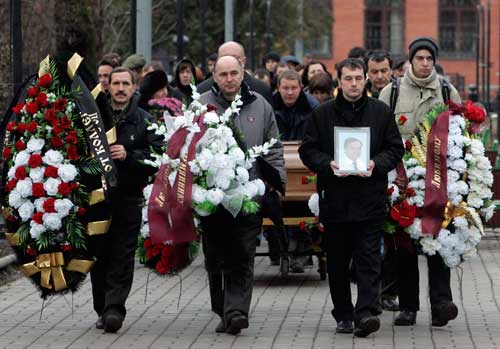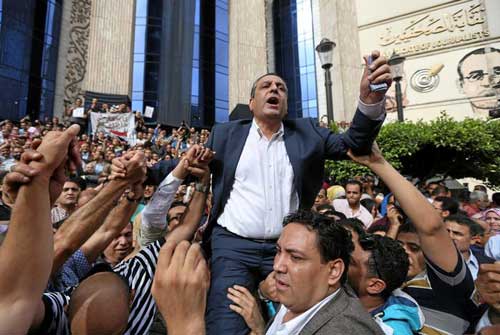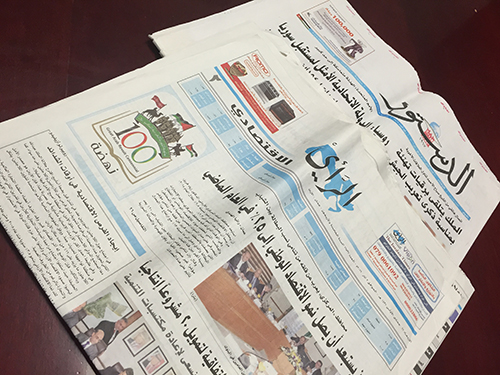CPJ joins call for Sultan of Oman to end persecution of Azamn journalists
The Committee to Protect Journalists and Reporters Without Borders today sent a letter to Sultan Qaboos bin Said of Oman, to draw his attention to the prosecution of three journalists from the independent daily newspaper, Azamn.

Mission Journal: Morocco’s new press law undermined by draft penal code
In the small, polished Moroccan capital of Rabat, pictures of King Mohamed VI, who took the throne in 1999, hang in many shops, offices, and hotels. In most of these, he is clean-shaven, smiling, and wearing a suit: a modern monarch. His image is part of the official narrative of the country as a place…
CPJ concerned about legal harassment of Bahraini journalist
Today the Committee to Protect Journalists joined 42 other organizations in a joint statement expressing concern at the Bahraini Public Prosecutor’s decision to charge Nazeeha Saeed, an award-winning journalist with Radio Monte Carlo Douliya and France24, with unlawfully working for international media.
Infographic: Islamic State’s assault on the press
When Mosul fell to Islamic State on June, 10, 2014, it sparked one of the biggest attacks on press freedom in recent times. Newspapers were shuttered, TV channels were ransacked, radio stations disappeared from the airwaves, and dozens of journalists vanished. Within days, the militants had a monopoly on information output.

Why Telegram’s security flaws may put Iran’s journalists at risk
The mobile messaging app Telegram is popular in Iran, where citizens who have limited access to uncensored news and mainstream social media sites, such as Facebook and Twitter, use it to share and access information. But the app’s estimated 20 million users in Iran, including those who use Telegram to report and communicate with sources,…

Global Magnitsky Act could be powerful weapon against impunity in journalist murders
Last week, the proposed Global Magnitsky Human Rights Accountability Act emerged from the U.S. House Foreign Affairs Committee with approval. The bill was passed by the Senate last year. If passed by the full House of Representatives and signed into law by the president, it has the potential to offer partial redress to one of…

Egyptian government clash with Journalists Syndicate marks turning point in censorship fight
A standoff this week between Egyptian authorities and the country’s influential Journalists Syndicate could mark a turning point in the fight for media control that has raged since before President Abdel Fattah el-Sisi took office.
CPJ joins call for World Bank to adopt human rights policy
The Committee to Protect Journalists has joined Social Justice Connection and other press freedom and human rights groups in calling on the World Bank to adopt a human rights policy at its annual spring meeting in Washington D.C. In a letter to the president of World Bank, Jim Yong Kim, the groups urged the bank…
CPJ joins call for Egypt to end its persecution of journalists, civil society leaders
The Committee to Protect Journalists joined 14 other organizations in calling on Egyptian authorities today to halt the persecution of journalists, press freedom advocates, and civil society leaders. Restrictive measures have included travel bans, asset freezes, and the re-opening of a five-year-old investigation into the foreign funding of human rights organizations.

Mission Journal: Rise in journalist arrests tarnishes Jordan’s image as reformist
The phone call came just as our conversation about the escalating crackdown on Jordanian media hit its stride. Lina Ejeilat, the co-founder of the news website 7iber (pronounced hebber), apologized and said she had to take the call. It was 7iber’s lawyer and it was important. For years the website had fought against a requirement…